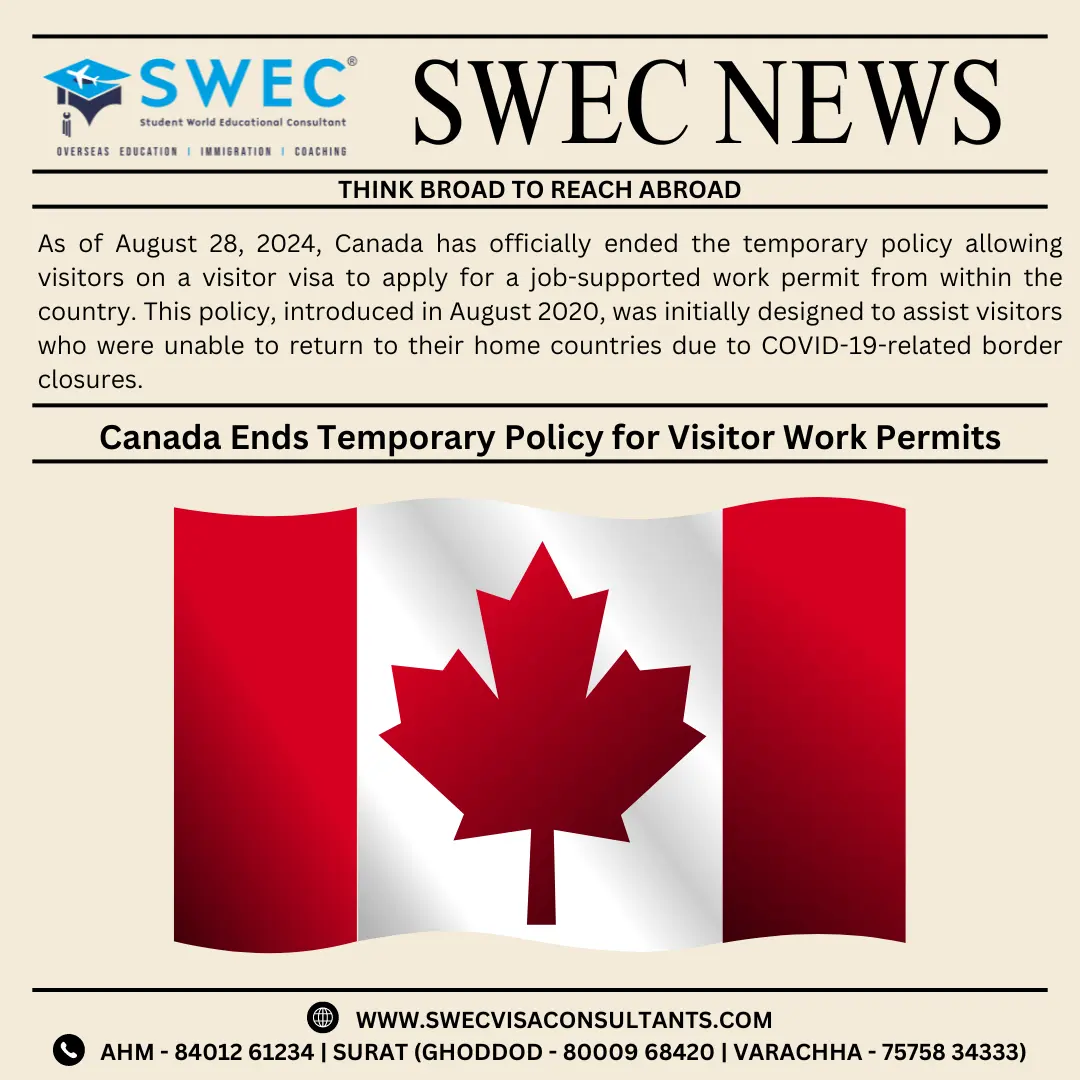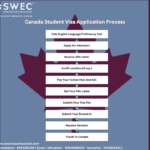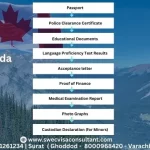As of August 28, 2024, Canada has officially ended the temporary policy allowing visitors on a visitor visa to apply for a job-supported work permit from within the country. This policy, introduced in August 2020, was initially designed to assist visitors who were unable to return to their home countries due to COVID-19-related border closures. It also aimed to help Canadian employers fill key labour gaps during a critical time.
Key Points:
- Policy Termination: The policy was initially set to expire on February 28, 2025. However, Immigration, Refugees, and Citizenship Canada (IRCC) has decided to end it early. The decision is part of broader efforts to manage the number of temporary residents and preserve the integrity of the immigration system.
- Impact on Applications: Applications submitted under the policy before August 28 will still be processed. However, visitors can no longer apply for job-supported work permits from within Canada.
- Reasons for Change: IRCC cited concerns over misuse of the policy by “bad actors” who were misleading foreign nationals into unauthorised work. This decision is part of IRCC’s ongoing efforts to combat immigration fraud and reduce temporary resident levels.
- Other Work Permits: Some visitors may still apply for other types of work permits from within Canada, such as Bridging Open Work Permits (BOWP), which must be submitted from inside the country.
Recent Developments in Canada’s Immigration Policy
This policy change is part of a series of adjustments aimed at managing temporary foreign worker levels in Canada. Recent measures include:
- Labour Market Impact Assessment (LMIA) Processing Pause: As of August 26, 2024, Canada will pause processing some LMIA applications for the Low-Wage stream of the Temporary Foreign Worker Program (TFWP) in areas with an unemployment rate of 6% or higher.
- Foreign Worker Hiring Restrictions: Employers are now limited to hiring no more than 10% of their total workforce from the TFWP. Additionally, the maximum term of employment for workers in the Low-Wage stream has been reduced to one year from two.
These changes reflect a rollback of pandemic-era policies that temporarily eased labour restrictions. For example, during the pandemic, Canadian workers were permitted to hire up to 30% of their workforce through the Low-Wage stream of the TFWP, and the LMIA validity period was extended to 12 months.
Conclusion
The recent policy changes mark a significant shift in Canada’s approach to temporary residency and foreign workers. While the rollback of the visitor work permit policy aims to address issues of immigration integrity and fraud, it also underscores the broader efforts by Canadian authorities to recalibrate immigration levels and manage labour market needs.
FAQs
1. What should visitors do if they need to apply for a work permit now?
Visitors currently in Canada should explore other types of work permits they may be eligible for, such as Bridging Open Work Permits, which still allow applications from within Canada.
2. Are there any exceptions to the new rule?
Certain types of work permits, like Bridging Open Work Permits (BOWP), must still be submitted from within Canada, and the applications will be processed if submitted before August 28.
3. How will these changes affect employers?
Employers may face more restrictions in hiring foreign workers and will need to adapt to the new limits on foreign worker percentages and shorter employment terms.
4. What are the broader implications of these changes?
These changes are part of a larger strategy to manage temporary resident levels and address immigration fraud, impacting how foreign nationals and employers interact with Canada’s immigration system.
5. How can I stay updated on future changes to Canadian immigration policies?
For the latest updates, regularly check the IRCC website and consult with immigration professionals.
To Know More You Can Contact US





